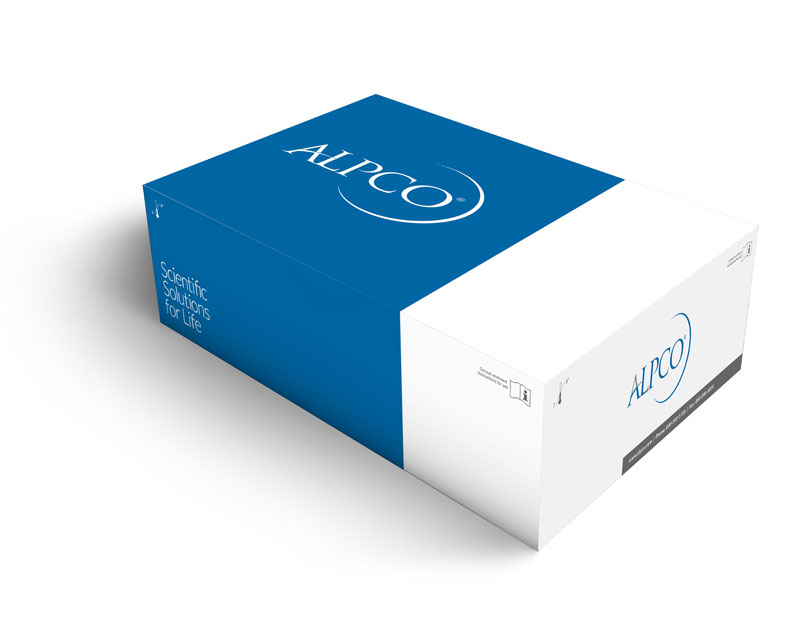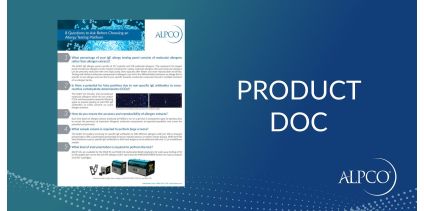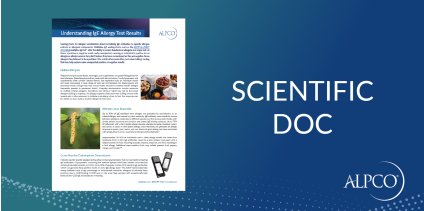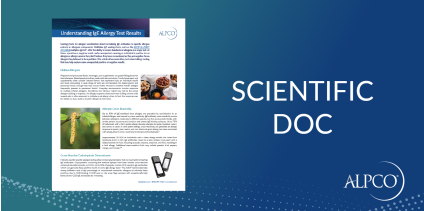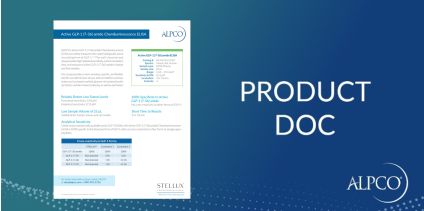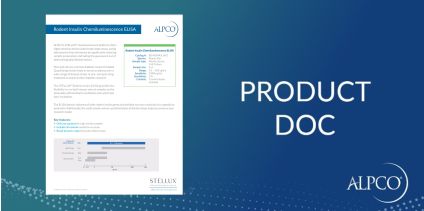Nitrotyrosine ELISA
$670.00
Catalog
30-7824
The Nitrotyrosine ELISA is an enzyme immunoassay intended for the quantitative determination of protein-bound nitrotyrosine in EDTA plasma, serum and
stool. For research use only. Not for use in diagnostic procedures
Species
Human
Regulatory Status
Research Use Only. Not for Use in Diagnostic Procedures.
Product Distribution
Available in North America Only
Range
32 - 1250 nM
Sensitivity
34.1 nM
Sizes
96 Wells
Sample Types
Plasma, Serum, Stool
Inc Time Hour
4
Inc Time Overnight
No
Inc Time See Protocol
No
Sample Size
100
Detection
Colorimetric
Nitrotyrosine is the nitrated form of the amino acid tyrosine. The accumulation of protein bound nitrotyrosine is associated with cardiovascular diseases that are based on inflammatory processes (e.g., atherosclerosis, myocardial infarction, diabetic vasculopathy, hypertension, or coronary heart diseases). A growing number of studies have also associated the accumulation of nitrotyrosine with neurological diseases (Alzheimer´s disease, Parkinson´s disease, multiple sclerosis, stroke). With treatment of some of the associated diseases the levels of nitrated tyrosines have been shown to decrease, so nitrotyrosine has been stated to be a marker of nitrosative stress.
The Nitrotyrosine ELISA is intended for the quantitative determination of Nitrotyrosine.
The Nitrotyrosine ELISA is for Research Use Only.
For more information on the Nitrotyrosine ELISA, call 800-592-5726.
The Nitrotyrosine ELISA is intended for the quantitative determination of Nitrotyrosine.
The Nitrotyrosine ELISA is for Research Use Only.
For more information on the Nitrotyrosine ELISA, call 800-592-5726.

